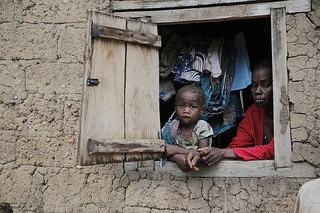The steady stream of Ebola cases and deaths in the three affected West African countries has continued over the past several days, boosting the number of confirmed, probable, and suspected cases to 22,829 and the fatality count to 9,162, according to the latest figures from the World Health Organization (WHO).
Though health authorities have seen some encouraging signs over the past several weeks, responders are still grapping with tough obstacles, such as community resistance, people spreading the virus to rural areas, incomplete contact tracing and case identification, and unsafe burials.
Since the WHO update on Feb 6, Guinea, Liberia, and Sierra Leone have reported 334 more confirmed, probable, or suspected cases and have linked 158 more deaths to Ebola. The new numbers reflect cases reported through Feb 8 for Guinea and Sierra Leone and Feb 7 for Liberia.
Of the totals reported since Feb 6, 100 are confirmed cases, and all but 3 were reported from Guinea and Sierra Leone.
UNICEF praises support for orphans
In other developments in the region, the United Nations Children's Fund (UNICEF) said 16,600 children in the three countries have lost one or both parents to Ebola, but less than 3% have had to be placed with caregivers outside their families in communities.
In a Feb 6 statement, UNICEF regional director Manuel Fontaine said families have shown incredible support after overcoming their early fears and misconceptions about Ebola. "This shows the strength of kinship ties and the extraordinary resilience of communities at a time of great hardship."
As of the middle of January, about 3,600 children had lost both parents to the disease, according to UNICEF, which has been helping identify orphaned children and linking them up with extended family members, community members, or foster families. In Guinea, all 773 children who lost both parents were placed with their extended families, the group said.
UNICEF's assistance to the children and their caregivers includes cash, material, help accessing schools, and psychosocial support. The group has also provided care to more than 250 unaccompanied children who had contact with Ebola patients.
Gambia lifts travel ban
Meanwhile, Gambia's government has lifted a travel ban on Guinea, Liberia, and Sierra Leone, AllAfrica news reported yesterday. In an announcement on state television over the weekend, officials said the ban would be lifted immediately.
Though the WHO had urged countries not to impose travel bans, saying they would hurt response efforts and the economies of the affected nations, Gambia banned air travel to the Ebola-hit nations in August. Several other countries and airlines announced similar bans.
In Guinea yesterday, skirmishes were reported between armed forces and local people in a Conakry neighborhood, following the arrest of an imam who had contact with a body of a person who died from Ebola, according to an update yesterday from the United Nations Mission for Ebola Emergency Response (UNMEER).
The highest Ebola virus levels are seen in people who are severely ill with the disease and those who recently died from it. The region's funeral practices, which often involve the washing of bodies, are thought to be one of the behaviors that have fueled the spread of the virus.
See also:
Feb 10 WHO situation update
Feb 6 UNICEF statement
Feb 9 AllAfrica story
Feb 9 UNMEER report



















